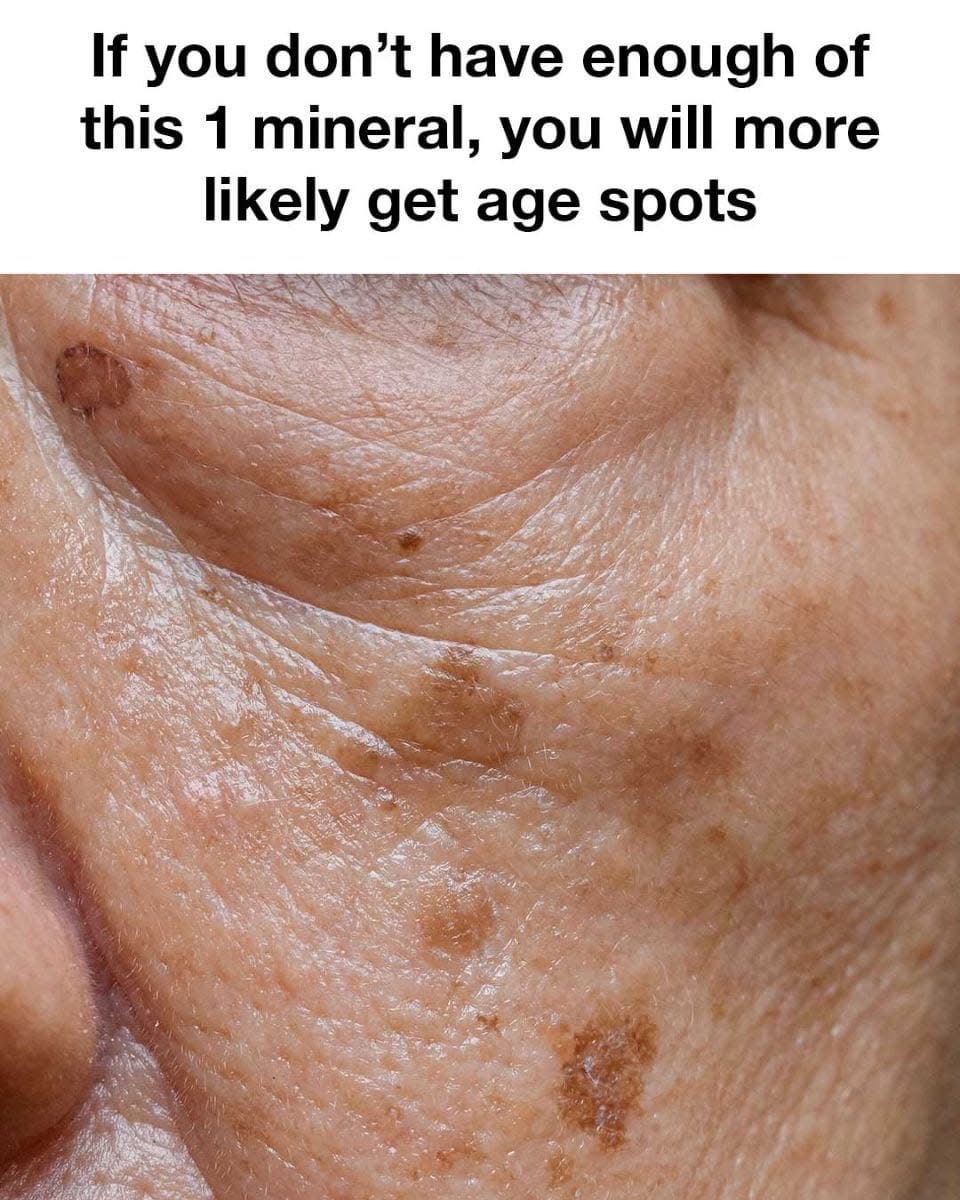
Have you ever observed dark patches on your skin following extensive sun exposure? These areas, commonly known as age spots, hepatic spots, or solar lentigines, tend to become more prevalent as we grow older. However, it may surprise you to learn that your mineral intake plays a significant role in their development.A deficiency in a specific mineral can increase your susceptibility to these spots. Let us delve into how this mineral influences your skin and what steps you can take to achieve a vibrant and healthy complexion.Neglecting this essential mineral may heighten your risk of developing age spots.
What is selenium, and why is it essential?
Selenium is vital for numerous bodily functions, including the maintenance of healthy skin. It serves as a potent antioxidant, protecting cells from damage inflicted by free radicals—unstable molecules that can accelerate aging and harm the skin. Additionally, selenium bolsters the immune system and aids in regulating thyroid hormones.
The best dietary sources of selenium include Brazil nuts, seafood such as tuna, halibut, and sardines, as well as organ meats like liver. Eggs, sunflower seeds, and whole grains also provide good amounts of selenium. Incorporating these foods into your diet can help you sustain adequate selenium levels.
Selenium supplements: advantages and precautionary measures.Selenium supplements can be beneficial for individuals with deficiencies, but they must be used with caution. Excessive selenium intake can lead to toxicity, resulting in issues such as gastrointestinal disturbances, hair loss, and nerve damage. It is recommended to seek advice from a healthcare professional before beginning any supplementation to ensure safe and appropriate use.
In summary, maintaining an adequate level of selenium is essential not only for promoting healthy skin but also for preventing age-related spots. As a potent antioxidant, selenium plays a crucial role in shielding the skin from oxidative damage and facilitating its repair. Incorporating selenium-rich foods into your diet can contribute to maintaining youthful and healthy skin. However, as with any supplement, it is vital to consult a healthcare provider to confirm that your intake aligns with your specific health requirements
